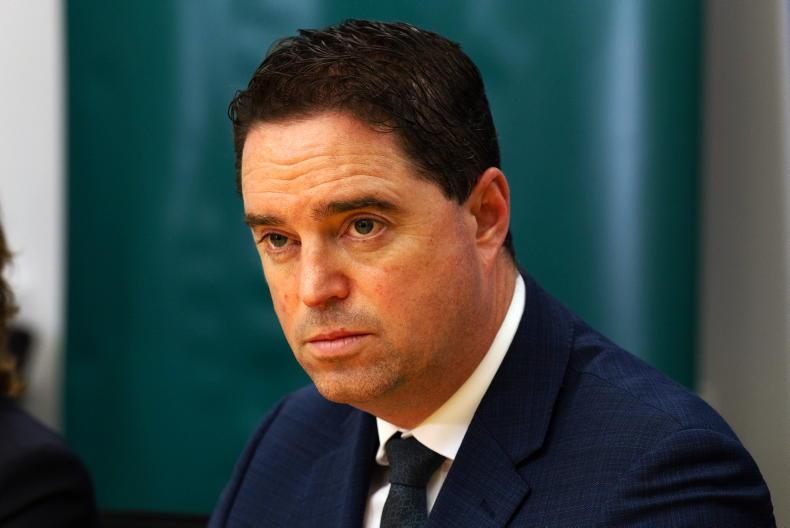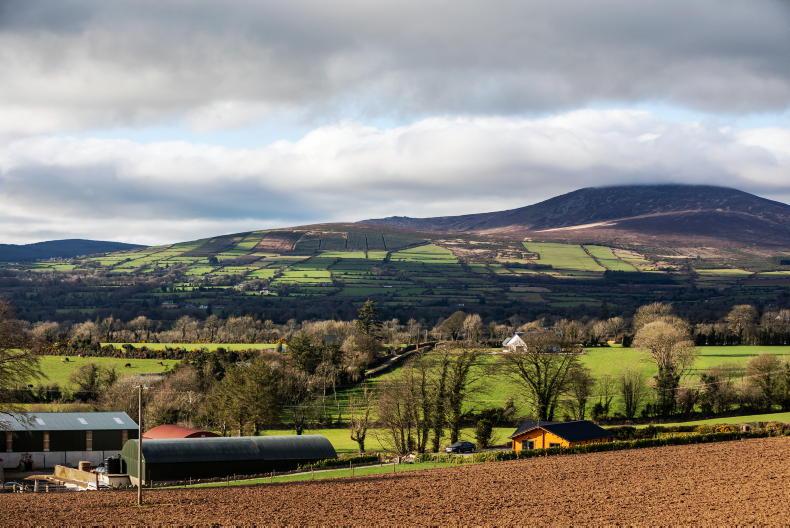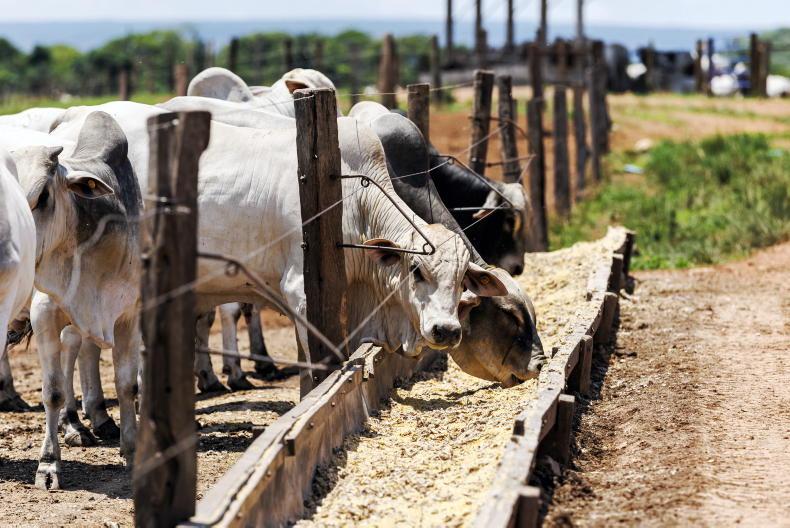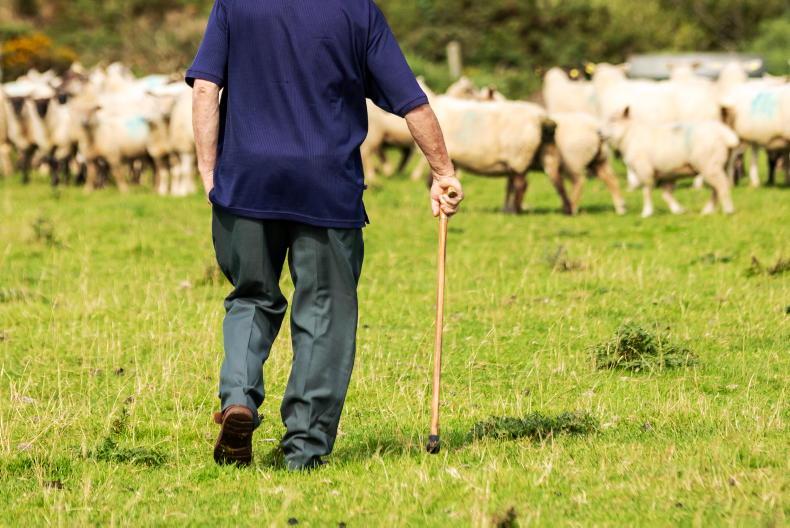On Monday, the president and vice presidents of Copa, the European umbrella farm organisation, held an online meeting to review last week’s events in Europe.
The Council of Ministers has agreed their position on the CAP and the EU Parliament had voted on its position.
I attended the meeting as a recently elected vice-president. Since I was elected, I have been heartened by the unity of purpose across Europe’s farm organisations and the strong defence of the sector. The outcome last week was not ideal, but the farming lobby across Europe proved effective against an onslaught on the CAP, which included six of our own MEPs.
The Parliament was faced with over 1,000 amendments. Prior to the voting, after months of negotiating, the three largest groupings in the Parliament, the European People’s Party (EPP), which includes Fine Gael; Renew Europe, which includes Fianna Fáil; and the Social and Democratic groupings agreed on a common position on a number of the amendments.
There was an apocalyptic reaction to this alliance from some NGOs
The alliance was described by the chair of the Parliament’s agriculture committee, Norbert Lins, as a “coalition of the reasonable”.
There was an apocalyptic reaction to this alliance from some NGOs, the more extreme left-wing groupings and the green grouping. They decided to back a motion to “scrap the CAP” reform altogether. A classic “if you can’t win the match, burst the ball” tactic.
The motion was defeated by 503 votes to 166. Despite some of the hysterical commentary, over 75% of MEPs who voted supported the process. Despite the inaccurate claims, this will make the CAP greener and most likely at the expense of farmers.
Eco-schemes
For example, while the European Council voted to allocate 20% of Pillar I payments to eco-schemes, the Parliament increased this to 30%. This difference will be settled during the upcoming trilogues between the EU institutions. Farmers will see this as 20% of their future income being dependent on them incurring more cost.
However, the implications of scrapping the CAP would have been devastating for Irish farmers and farmers across Europe.
It was a reckless proposition
Last year, the CAP brought €1.8bn into rural Ireland. All 130,000 recipients have to meet strict cross-compliance measures. Fifty thousand farmers also participate in the Green Low Carbon Scheme (GLAS).
It was a reckless proposition. Remarkably, six of Ireland’s 12 sitting MEPs voted in favour of the “scrap the CAP” reform proposal. These were Ciaran Cuffe and Grace O’Sullivan of the Green Party, Chris McManus of Sinn Féin and Independents Claire Daly, Luke Ming Flanagan and Mick Wallace.
Look beyond the rhetoric and soundbites and remember what these six MEPs voted for. To have no agreed CAP. To have no agreed transition regulation for the next two years. To risk having no payments next autumn.
Thankfully, over 75% of MEPs across Europe had more sense
They are democratically elected. They are free to vote as they choose. Equally, the electorate are entitled to know exactly what they did. Thankfully, over 75% of MEPs across Europe had more sense.
The process now moves onto the trilogue phase between the European Commission, European Council and the European Parliament. All three institutions are proposing a much greener CAP. But they must remember that the basic cornerstone of the CAP is to support farmers to provide safe, nutritious food at affordable prices.
Last week, farmers were demonised on social media by a vocal minority. As we head into trilogues, we cannot allow that minority to dictate a narrative which is not accurate.
Copa and our office in Brussels will continue to focus on conveying our message to the decision-makers. We must continue to build the coalition of the reasonable.
Read more
2020 Vision: chlorinated chicken debate still has legs
Watch back: 2020 vision debate
On Monday, the president and vice presidents of Copa, the European umbrella farm organisation, held an online meeting to review last week’s events in Europe.
The Council of Ministers has agreed their position on the CAP and the EU Parliament had voted on its position.
I attended the meeting as a recently elected vice-president. Since I was elected, I have been heartened by the unity of purpose across Europe’s farm organisations and the strong defence of the sector. The outcome last week was not ideal, but the farming lobby across Europe proved effective against an onslaught on the CAP, which included six of our own MEPs.
The Parliament was faced with over 1,000 amendments. Prior to the voting, after months of negotiating, the three largest groupings in the Parliament, the European People’s Party (EPP), which includes Fine Gael; Renew Europe, which includes Fianna Fáil; and the Social and Democratic groupings agreed on a common position on a number of the amendments.
There was an apocalyptic reaction to this alliance from some NGOs
The alliance was described by the chair of the Parliament’s agriculture committee, Norbert Lins, as a “coalition of the reasonable”.
There was an apocalyptic reaction to this alliance from some NGOs, the more extreme left-wing groupings and the green grouping. They decided to back a motion to “scrap the CAP” reform altogether. A classic “if you can’t win the match, burst the ball” tactic.
The motion was defeated by 503 votes to 166. Despite some of the hysterical commentary, over 75% of MEPs who voted supported the process. Despite the inaccurate claims, this will make the CAP greener and most likely at the expense of farmers.
Eco-schemes
For example, while the European Council voted to allocate 20% of Pillar I payments to eco-schemes, the Parliament increased this to 30%. This difference will be settled during the upcoming trilogues between the EU institutions. Farmers will see this as 20% of their future income being dependent on them incurring more cost.
However, the implications of scrapping the CAP would have been devastating for Irish farmers and farmers across Europe.
It was a reckless proposition
Last year, the CAP brought €1.8bn into rural Ireland. All 130,000 recipients have to meet strict cross-compliance measures. Fifty thousand farmers also participate in the Green Low Carbon Scheme (GLAS).
It was a reckless proposition. Remarkably, six of Ireland’s 12 sitting MEPs voted in favour of the “scrap the CAP” reform proposal. These were Ciaran Cuffe and Grace O’Sullivan of the Green Party, Chris McManus of Sinn Féin and Independents Claire Daly, Luke Ming Flanagan and Mick Wallace.
Look beyond the rhetoric and soundbites and remember what these six MEPs voted for. To have no agreed CAP. To have no agreed transition regulation for the next two years. To risk having no payments next autumn.
Thankfully, over 75% of MEPs across Europe had more sense
They are democratically elected. They are free to vote as they choose. Equally, the electorate are entitled to know exactly what they did. Thankfully, over 75% of MEPs across Europe had more sense.
The process now moves onto the trilogue phase between the European Commission, European Council and the European Parliament. All three institutions are proposing a much greener CAP. But they must remember that the basic cornerstone of the CAP is to support farmers to provide safe, nutritious food at affordable prices.
Last week, farmers were demonised on social media by a vocal minority. As we head into trilogues, we cannot allow that minority to dictate a narrative which is not accurate.
Copa and our office in Brussels will continue to focus on conveying our message to the decision-makers. We must continue to build the coalition of the reasonable.
Read more
2020 Vision: chlorinated chicken debate still has legs
Watch back: 2020 vision debate








SHARING OPTIONS